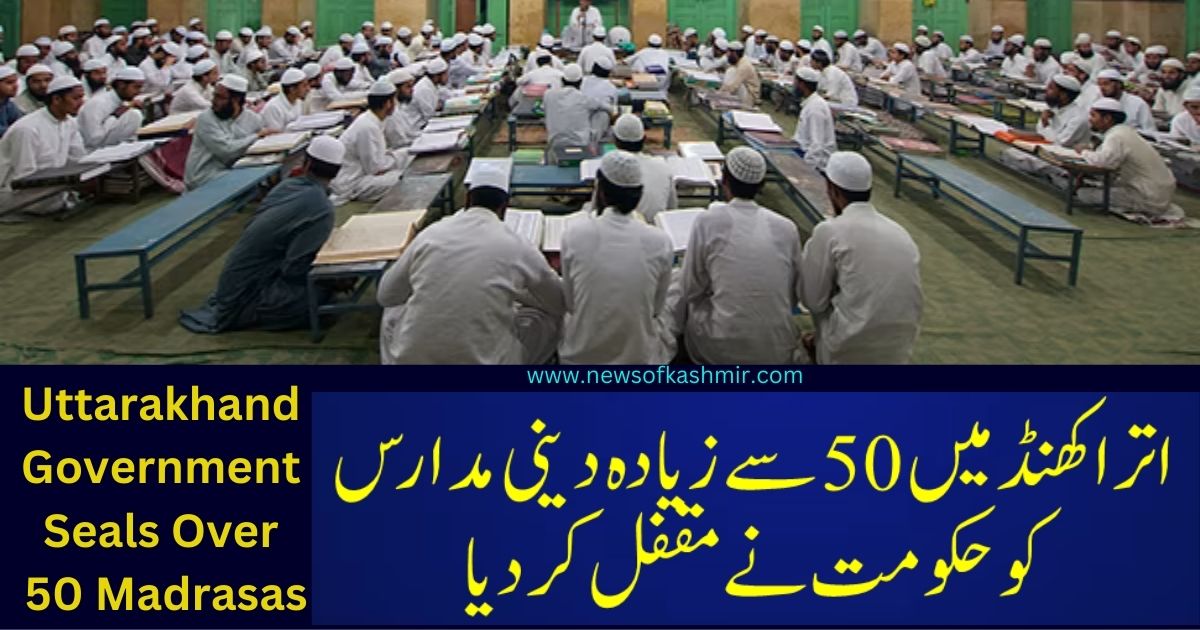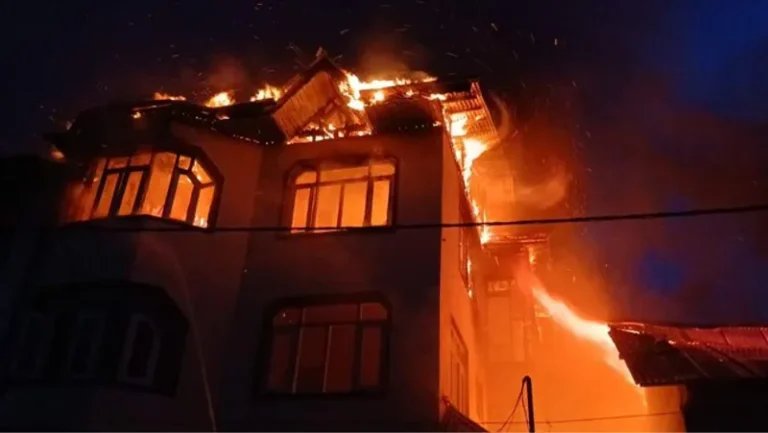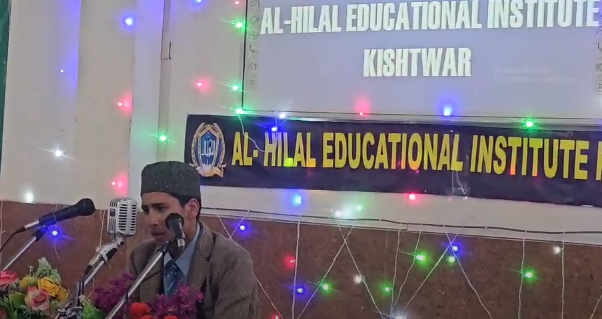Uttarakhand Government Seals Over 50 Madrasas, Sparking Controversy and Protests

The Uttarakhand government has recently sealed more than 50 ‘illegal’ madrasas in various parts of the state, triggering strong reactions from political leaders, religious organizations, and human rights activists. The move, ordered by Chief Minister Pushkar Singh Dhami, is part of an intensified crackdown on unregistered religious educational institutions. While the state government claims that the action is necessary to curb illegal activities, critics have termed it discriminatory and unconstitutional.
Click Here To Follow Our WhatsApp Channel
Crackdown on Madrasas
Over the past two weeks, authorities have sealed 52 madrasas in different districts, particularly in Dehradun and Udham Singh Nagar. According to officials, these institutions were operating without proper registration, violating land use policies, and failing to meet the state’s education standards.
Chief Minister Dhami defended the move, stating, “In ‘Devbhoomi’ Uttarakhand, we will not allow any illegal madrasa or unlawful construction. Action has been taken against those that were found to be violating the law, and this drive will continue.”
The decision comes months after Dhami highlighted issues such as religious conversions, illegal encroachments, and demographic changes in the state. He emphasized that the government would not tolerate any activity perceived as a threat to the state’s religious and cultural identity.
Opposition and Backlash
The sealing of madrasas has drawn sharp criticism from opposition parties, Muslim organizations, and human rights groups, who argue that the action unfairly targets a specific community. The Uttarakhand Congress has accused the government of using communal politics to divert attention from pressing issues like unemployment, women’s safety, and drug abuse.
Congress spokesperson Garima Dasauni questioned the selective crackdown, stating, “Are only madrasas illegal in the state? What about the numerous unauthorized hotels, restaurants, and other educational institutions? The government should take action across the board rather than targeting one community.”
The Muslim Seva Sangathan, a rights group advocating for the Muslim community, has called the move “unconstitutional” and has staged protests demanding justice for affected students and institutions. Naeem Qureshi, the president of the organization, condemned the action, saying, “The Constitution grants minorities the right to establish and manage their own educational institutions. The authorities have sealed madrasas without any prior notice or due process.”
Impact on Students
One of the biggest concerns arising from this crackdown is the impact on students. According to estimates, around 2,000 students have been affected, many of whom now face uncertainty regarding their education. Critics argue that the government has failed to provide alternative arrangements for these students.
Shadab Shams, the chairman of the Uttarakhand Waqf Board, acknowledged the problem but defended the government’s action, stating, “There are 419 recognized madrasas in Uttarakhand, but around 400 others are running illegally. The government is taking action only against unregistered institutions. We are working to establish ‘modern madrasas’ to provide quality education.”
Political and Religious Implications
Several political analysts believe that the crackdown is part of the ruling BJP’s broader Hindutva agenda. Jai Singh Rawat, a political expert from Uttarakhand, remarked, “Under CM Dhami, the state government has shifted its focus from development issues to communal politics. By emphasizing topics like ‘land jihad’ and ‘love jihad,’ the government aims to consolidate its support among Hindu voters.”
Reports suggest that some BJP leaders have been vocal about demographic shifts in the state, particularly migration from neighboring Uttar Pradesh. These leaders argue that unchecked expansion of religious institutions could alter the region’s religious composition.
Government’s Justification
State officials have defended the crackdown, citing legal violations as the primary reason. “We have received multiple complaints about illegal madrasas operating in unauthorized areas. Many of them do not follow basic safety regulations and lack proper educational standards,” said a senior government official.
Another official explained that the action was taken primarily against institutions that had encroached on government land or failed to meet state educational requirements. However, opposition leaders argue that such legal actions should apply equally to all illegal establishments, not just madrasas.
Conclusion
The sealing of over 50 madrasas in Uttarakhand has ignited a heated debate over religious freedom, communal politics, and governance. While the state government maintains that the action is purely legal, critics see it as an attempt to target a specific community under the guise of regulation. With protests mounting and legal challenges likely, this issue is expected to remain a significant flashpoint in the coming months.
As the controversy unfolds, questions remain about the fate of the displaced students and whether the state will offer them alternative education pathways. Meanwhile, opposition leaders continue to demand a fair and transparent approach to dealing with illegal institutions across the board, rather than singling out religious schools.
You Might Also Like :
Abu Dhabi’s MGX Invests $2 Billion in Binance, Strengthening UAE-Crypto Ties
76 Active Militants, Including 59 Foreign Terrorists, Remain in Jammu and Kashmir
Columbia Graduate Mahmoud Khalil Arrested by ICE Amid Pro-Palestine Protests, Sparking Outrage





